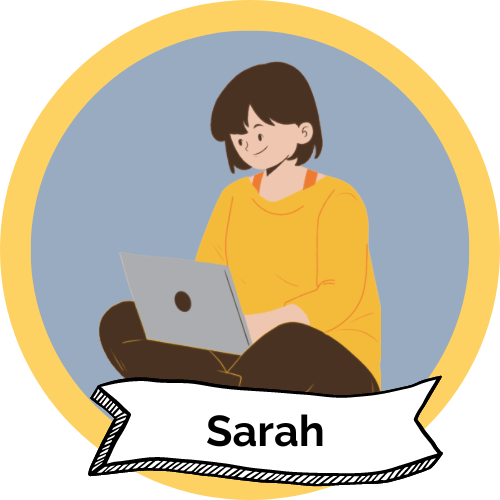Here are our top tips for deciding which music schools to apply to:
Join Clubs
3 Clubs For Students Interested in Literature
Creative Writing Club
These workshop based clubs allow students a space to share their creative works with their peers and receive feedback as they work to develop creative pieces to add to their portfolios! Joining such a club is a great, fun opportunity to hone your writing skills both through practice and critique.
Literary Magazine
Like creative writing clubs, literary magazines often include a workshop based structure, but once workshopped and polished, students work to publish their works in a literary magazine. These magazines typically showcase students’ poems, short stories and personal essays.
School Newspaper
Many schools with music programs generally offer them in the form of an orchestra or band, where students are able to gather and play music together, as well as learning instruments.
If your school does not have a writing club, newspaper, or literary magazine, you can start one yourself. This demonstrates initiative and leadership to college admissions officers and will help you get involved in your school’s community! You can find more details on how to start a club here.
As you complete the process of founding a club, here are some additional questions for you to consider that are relevant to a writing-based club:
Intern in Publishing and Writing
Publishing
You can seek several types of internships within the publishing industry. Many individuals who are interested in literature eventually want to go into the publishing industry. There are three types of companies you can work for in this field:
The “Big 4”
“The Big 4” are the four major publishing companies–Penguin Random House, HarperCollins, Simon & Schuster, and Hachette–and each has imprints that specialize in books for a specific age group or genre. These publishing mavericks are household names in the book world. They are called “The Big 4” (formerly “The Big 5”), because in addition to being behemoths in size, they have large distribution networks and budgets. Imprints are genre-specific. For example, Orbit only publishes science fiction and fantasy. Small presses on the other hand, are often digital-only, or only place books in independent bookstores. They generally have a smaller reach and budget, and are not as well-known. Some examples of small presses are Tiny Fox Press, Akashic Books, and Graywolf Press.
Literary agencies
Agencies take on authors and help them secure a book deal with a publishing company. In addition, they negotiate terms and rights and generally manage an author’s career. Interning with a literary agency, you might read and comment upon inbound submissions, organize or collect data, and assist with other administrative tasks.
Job search sites
You can find publishing company internships through job listing sites such as Indeed and LinkedIn as well as on the companies’ websites in the “Careers” section. Literary agencies tend to have smaller and more insular environments, and often don’t publicize their internships. So, you should not assume an agency doesn’t have an internship program simply because you don’t see one posted on its website. The best way to go about finding out if an agency hires interns is to contact its hiring manager, or an agent at the company to inquire about available positions. Keep in mind that many positions may be unpaid, but beneficial to developing your hook. Some prestigious literary agencies to check out are: Sterling Lord Literistic, Azantian Literary Agency, and The Knight Agency.
Journalism
Many journalism internship opportunities are offered by newspapers and magazines. The type of content that interns write ultimately depends on the kind of publication they work for. For example, one intern could be assigned to create quizzes and listicles for teens, while another might report on sports or celebrity gossip. When seeking journalism internships, it’s important to consider what kind of pieces you would like to write, and to look for publications that regularly release content of that nature.
Reaching out to your Network
The first step to pursuing a journalism internship is to reach out to your network to see if they know anyone who works in the field of journalism. You should be mindful that your network includes parents and other extended family members, family members’ friends, your own friends, and your friends’ parents. It’s possible someone they know can put in a good word with an editor at a local newspaper or publication, and help you to secure an internship that way.
Looking Locally
As aforementioned, you will have much better results if you seek internships with local newspapers and publications. While you may know very little about local publications in your city, let alone how to contact them, a quick Google search goes a long way. All you need to do is Google the name of your town alongside “local publications” or “local/town newspaper.” If this tool doesn’t provide the information you need, your best bet is to head down to the library and ask the librarian for the names and websites of any local publications. By its very nature, it’s common to not receive a response to cold outreach, particularly as a high school student. Be persistent, and send a follow-up a week after you send an initial outreach email if you don’t hear back. Make sure you emphasize that you don’t expect to be paid and that if an internship isn’t a possibility, ask if you would be able to shadow someone for a few days.
Cold Emails
If you’re unsure of how to reach out to local companies, you will first need to start with a simple “cold email.” Though there are many example cold emails available online you can use as a reference, you should be able to write your own cold emails from scratch based on who you are trying to intern for.
Here’s an example of a cold email:
Subject: Internship Search
Dear Mr/Ms/Mrs X,
My name is Janice Nane, and I’m currently a junior attending Forks High School hoping to study Literature in college. I am writing to see if your company is open to hiring an unpaid intern for the summer.
As an editor and staff writer for my high school’s literary magazine, I am responsible for writing two poems or short stories and editing two of my peer’s pieces on a biweekly basis, and help to assemble our biannual print edition each fall and spring. This experience has only reinforced my passion for literature and my desire to work for a literary agency.
I am looking for a summer internship opportunity and am wondering if you are in need of a summer intern? I would be glad to bring my passion for literature to your office and support your team in any way I can.
Thank you so much for your thoughtful consideration. If I could be of use to you as an unpaid intern, please don’t hesitate to contact me any time Monday-Friday after 3:00 p.m. to schedule an interview so that we may discuss an internship further. I can be reached at (333) 333-3333 or [email protected]
Sincerely,
Janice Nane
Start a Blog or Podcast
Creating content will not only allow you to showcase your passion for writing, but also allow you to develop new skills. Starting a blog or podcast requires determination, ambition, and marketing skills–all qualities that colleges and future employers will like to see.
The most important thing to remember when it comes to releasing content is to be consistent, and stick to a schedule. Whether you want to post articles every Tuesday, or record a podcast episode every two weeks is up to you!
If interested in starting a literary or writing-based blog or podcast, here are some content ideas to help you get started:
Additionally, try checking out established resources for information or inspiration. Some top podcasts in literature include:
Some examples of blogs include:
Career Paths
There are a few different career paths you can pursue if you have a passion for literature. The best suggestions are:
Publishing
This is a great field if you love reading and critiquing fiction, or being a part of the book production process. Within the publishing industry there are jobs in marketing, editing, sales, and production. If none of those sounds interesting, you can also work as an editor!
Journalism
Journalists work to write and report news and stories to the general public across a multitude of channels: print and digital magazines and newspapers, as well as social media platforms and film and television. Most journalists start their careers at small, local publications and work for bigger publications once they have gained experience!
Teacher or Professor
Teachers are responsible for creating curricula, assignments, grading assignments, and managing a classroom. Teachers also help students learn how to analyze great, classic works of writing, and strengthen their students’ writing skills. If you are interested in working with students and teaching English, then this is the right path for you. This is a fantastic career choice for anyone who is interested in literature and working closely with others.
The process of becoming a professor is more difficult, and will require getting a Ph.D. in the field you want to teach. Many professors teach and research at colleges and universities, though some doctorates pursue careers in non-education based industries!
Editor
Being an editor is a career for those who have a keen eye for detail, strong writing skills, and enjoy digging into the nitty-gritty of text. An editor’s job is to shape the content of a piece of writing to be narratively strong, or, to polish the prose for readability, accuracy, grammar and flow. There are editorial jobs in book publishing, magazines, journalism, marketing, and more. As an editor, you will help writers to improve the quality of their work.
Contests and Competitions
Here are some contests and databases through which you can find contests and competitions related to poetry, fiction and essay writing. Winning prestigious competitions is a great way to demonstrate proficiency in your field of interest.

Case Study of a Past Command Student
A student from the midwest, Sarah* found her passion for journalism in middle school, so she knew she wanted to join her high school newspaper as soon as possible. Starting out as a staff writer, Sarah introduced a new interview-focused series modeled after Humans of New York to the paper, as well as writing a few major stories on student mental health and remote learning policy changes. In her sophomore year, she was Features Editor, and by junior year, she was elected Editor-in-Chief. Over summers, Sarah attended selective journalism institutes to expand her skills in multimedia journalism and data analysis, and through family connections, she shadowed reporters at a local press. Her journalism work was recognized at the regional and national level by the Scholastic Art & Writing Awards. Although she was admitted to journalism programs at Columbia University, University of Southern California, and Emerson College, she chose to attend Northwestern University.
*Name and details changed to comparable alternatives for anonymity




